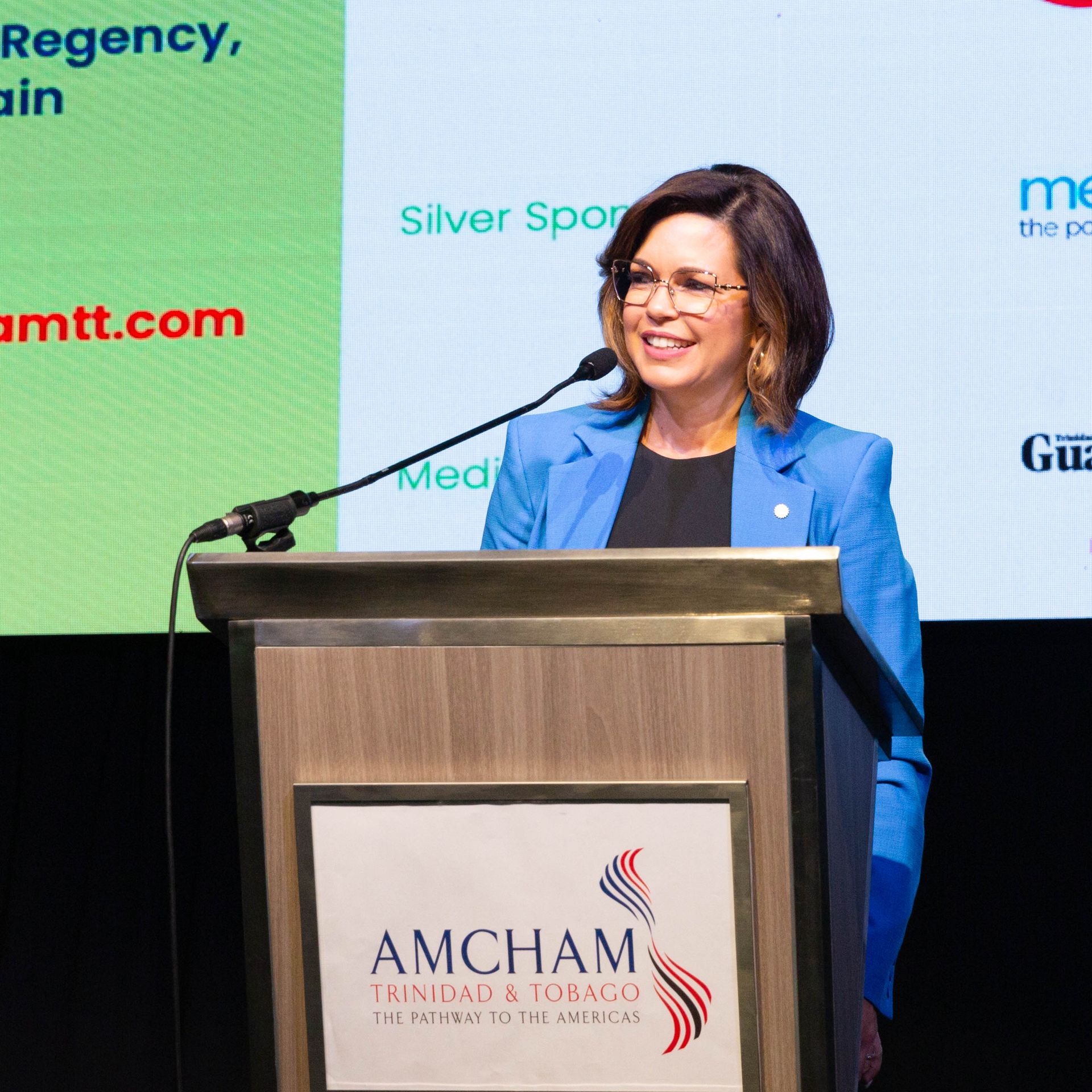
Good morning.
I’m very pleased to be representing bpTT today as the title sponsor for this conference – AmCham's 2nd hosting of its ESG conference.
I’d like to congratulate AmCham for keeping ESG on the front burner and building on the foundation laid at the inaugural conference last year. And particularly doing so when some would say the notion of ESG is on shaky ground.
Depending on your viewpoint, ESG as a concept is either evolving or heading towards its demise.
We are seeing many discussions - or disagreements globally – on its relevance to investment and corporate performance.
We’re seeing ESG becoming politicized across the US and Europe with many questioning whether “woke capitalism” is just another fad, a marketing ploy, greenwashing to win customers, shareholder loyalty and artificially inflate share value.
A large part of the debate is focused on definitions, metrics, ill-defined goals which all leave a lot of room for interpretation with some questioning does ESG simply provide a tick in the box?
We’ve seen influential CEO’s like BlackRock’s Larry Fink say that he will no longer be using the ESG label because it has become too politicized. And with the discussion going in so many directions it’s tempting to ask if ESG as an umbrella concept is still relevant and is the investment community moving away from ESG priorities,... or, is this a re-branding or re-invention of the concept of sustainability and good governance.
What does that mean for this conference? Did we gain anything last year? Is there any use to spending a day together discussing these issues?
For bpTT, as a sponsor and key member of T&T’s corporate community, I can stand proud to say we believe it’s worth the investment. Because putting politics, labels and definitions aside, we believe and have experienced that creating sustainable business models that anticipate people’s needs and help solve community and global issues is possible while also making a profit. Doing good is good business.
Why?
Because whether or not ESG as a definition or concept endures, the issues that it seeks to address remain.
• As organisations, we have an obligation to protect the environment and understand our impacts
• We must manage the social impacts of our operations and relationships with employees, suppliers, customers and communities
• And, strong governance is an imperative to doing business globally.
Simply put companies must understand and address their externalities to maintain their social license to operate.
On a personal level, last year’s conference was an eye opener for me in terms of what is being achieved in Trinidad and Tobago under the umbrella of ESG and in so many different spheres of business and industry. The conference was an opportunity to share learnings and was full of examples and opportunities for collaboration.
I’m sure that this year’s conference will generate even more ideas, and more great examples of progress.
That’s great, but we can’t ignore the elephant in the room.
The ongoing - often polarizing – discourse is actually distracting from the advances that are being made. You could say that we’re reaching the point where the rhetoric around ESG seems to be overtaking the concept. It is becoming harder for the public and investors to understand the progress being made and to trust what is being reported.
This has implications for how we reach the general public or, more specifically, investors.
If we are not aligned, how can we expect the public to trust what we are saying?
One suggestion to overcome this is to focus on the components of ESG. These concerns are what drove the creation of ESG as a concept in the first place. Continue to work towards improving understanding and improvements in each area – environment, social and governance. Taken separately, we can see the gains being made in each area. We can also understand where we need to improve.
Ultimately, ESG, in its many forms and definitions, is about addressing sustainability – for organisations, governments and the planet. Regardless of disagreements, there is consensus that as organisations, what we do and how we do it have a wider impact on society and the planet. That’s perhaps why in a recent survey conducted by Teneo, a global CEO advisory firm – 92% of CEO’s said they are standing by their ESG related programs.
It’s not just about understanding. It’s also about doing more, it’s about operating in a manner that is sustainable, that positively impacts people’s lives and the planet.
That’s what really excites me and I’m sure it’s the same for all of you as well.
Looking at the conference agenda, I think Amcham has done a great job of setting up the discussion related to reporting, compliance, governance and making an impact. Today looks packed with great content and great speakers and I’m certainly looking forward to the outcomes of these sessions.
I would add that we also need to consider how to ensure that we can measure and verify our ESG or sustainability activities in a manner that is simple, consistent and accessible.
Do we need to place an ESG label on it? ‘no.’
In closing I would like to thank AmCham, for sticking with this conference and for all of you who came here today to share, to learn and to collaborate. Who knows? Maybe we can start to sow the seeds for the ‘Conference formerly known as ESG’ next year...... that was a joke.
Thank you.
References:
Is ESG Dead? Or Just in the Middle of a Reinvention? (sustainabilityprofessionals.org)
Is ESG Dead, or Just Getting Rebranded? ━ The European Conservative
https://www.reuters.com/business/environment/blackrocks-fink-says-hes-stopped-using-weaponised-term-esg-2023-06-26/